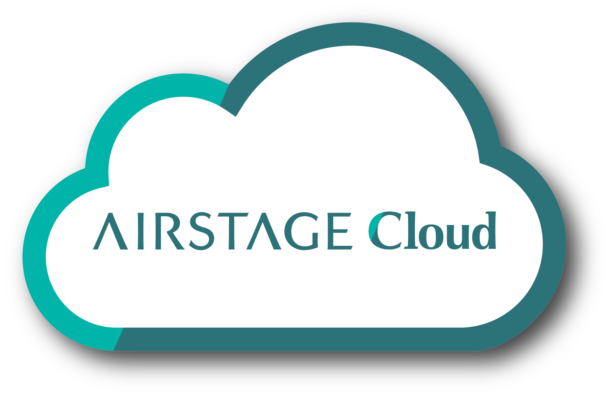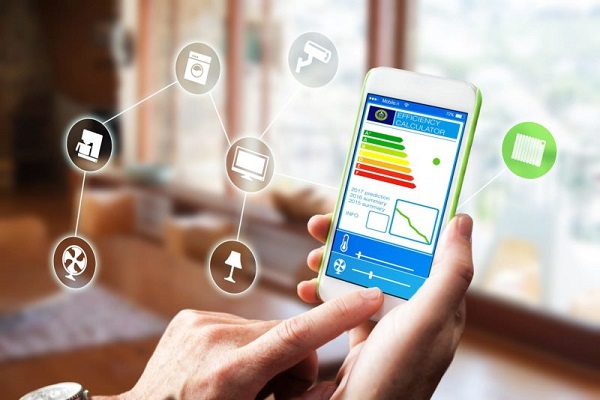Fujitsu General America has introduced its AIRSTAGE Cloud, a platform that provides Building Management Systems as a Service. The highly versatile cloud platform provides effective and efficient monitoring, management, and maintenance of Fujitsu General’s VRF and mini split systems along with the ability to control and monitor third party equipment, including all thermostatically controlled HVAC Read more
HVAC systems

Fujitsu General America has introduced its AIRSTAGE Cloud, a platform that provides Building Management Systems as a Service.

The highly versatile cloud platform provides effective and efficient monitoring, management, and maintenance of Fujitsu General’s VRF and mini split systems along with the ability to control and monitor third party equipment, including all thermostatically controlled HVAC systems, regardless of the manufacturer.
AIRSTAGE Cloud relies on highly automated software-as-a-service (SaaS) based software services operating in a modern Cloud-edge architecture to make it possible to avoid the costly, complex, custom design and programming tasks necessary for implementation and operation of current industry standard building management systems.
The new platform’s plug and play recognition of building equipment makes installation, commissioning and operations of AIRSTAGE Cloud BMS simple and fast, enabling HVAC contractors and facility managers to deliver a powerful BMS at a fraction of the cost of a conventional BMS. With AIRSTAGE Cloud BMS as a service, building operators and facility managers can finally cost effectively deploy a BMS for any size project.
Cloud access can be assigned to any number of parties. For example, the property owner and business staff can be added as administrative users, facilities support personnel and HVAC professionals can be added as technician users, and tenants can be added occupant users. All these user types can have different rights and restrictions as the account holder desires.
AIRSTAGE Cloud now includes two new apps, Site Manager and Refrigerant Cycle Monitor (RCM). Site Manager allows users of an account to monitor and control a complete portfolio of sites, from one site to thousands. Account access can be assigned to any number of users. For example, the property owner and business staff can be added as administrative users, facilities support personnel and HVAC professionals can be added as technician users, and tenants can be added as occupant users. In addition, a user’s access can be further customized by a sophisticated permissioning system.
RCM is a specialized diagnostic tool used to monitor and diagnose issues with AIRSTAGE VRF systems. It is predominantly used during installation and commissioning of VRF systems. It greatly reduces service times, labor, and repeat visits saving all stakeholders time and money.
Learn more at www.FujitsuGeneral.com

Top field service technology solution provider partners with leading cooling industry association to enhance insights and help fight labor shortage XOi, a leading provider of technician-focused technology solutions, announces a new partnership with the Independent Contractors Exchange (ICE) Group, a select group of independent HVAC contractors specializing in the service and installation of applied HVAC systems Read more
Top field service technology solution provider partners with leading cooling industry association to enhance insights and help fight labor shortage
XOi, a leading provider of technician-focused technology solutions, announces a new partnership with the Independent Contractors Exchange (ICE) Group, a select group of independent HVAC contractors specializing in the service and installation of applied HVAC systems.
As the premier commercial technical HVAC peer organization in North America, the ICE Group provides service excellence and innovation for applied HVAC systems including chillers, air systems, cooling towers, boilers, water systems and automation. The partnership provides ICE Group contractors with direct access to powerful field knowledge and insights through XOi’s advanced data-driven solutions.
“XOi provides the ICE Group with the leading smart tools for capturing and evaluating field data with visual documentation, job analytics, and asset insights,” said Rob Bottimore, COO of American Chiller Service. “The partnership between ICE Group and XOi helps our member companies make informed decisions, centralize our focus on service improvements, and support all skill levels of technicians on the job. I believe we will build a generational knowledge asset unseen in the industry that becomes the lasting legacy of the ICE Group.”
XOi’s powerful technology solutions empower ICE Group member technicians to:
- Share resources and automation to enhance their collective potential and overall service experience.
- Store shared historical service knowledge, with added smart features to improve accessibility and visual support for each request within their membership.
- Access educational resources and equipment information so they can make more informed decisions, bridge the skilled labor gap, and provide exceptional customer service.
“XOi’s partnership with the ICE Group is a game-changer for industry leaders in commercial cooling services,” said Aaron Salow, CEO and founder of XOi. “Equipping their members with actionable insights, a central knowledge base, and automated features empowers the group to make informed decisions, mentor new techs, and operate with a high level of efficiency. XOi has eliminated visibility barriers for disparate data sets, providing ICE Group with a competitive advantage for members to analyze service trends, capture and evaluate OEM data, and visualize diagnostic themes. This arms their teams with the ability to increase revenue opportunities while streamlining administrative processes and knowledge sharing between each member.”
The ICE Group’s mission is to improve their people, companies, and the industry through technical support and training, sharing of best practices, and maintaining positive relationships with strategic partners in the industry. For more information, visit https://icegroup.org/.

Homeowners in the United States are becoming more inclined to update their residences with the latest smart home technology. Smart homes are the homes of the future and come fully equipped with a range of interconnected devices to offer benefits to the average homeowner. Smart voice assistants, smart kitchen appliances, smart home security systems, and Read more
Homeowners in the United States are becoming more inclined to update their residences with the latest smart home technology. Smart homes are the homes of the future and come fully equipped with a range of interconnected devices to offer benefits to the average homeowner.
Smart voice assistants, smart kitchen appliances, smart home security systems, and smart HVAC systems are examples of smart home technologies that homeowners are looking to adopt. It shouldn’t come as a surprise, considering how technology has developed over the years and how the consumer market is becoming more tech-savvy.
As American homes are evolving, how will the role of technicians change? Will technicians learn new skills or technologies to earn business from homeowners? Below is more information about smart home technology and how the role of technicians may change in an interconnected digital era.

Smart Homes Becoming More Commonplace
Statista estimates that the number of smart homes will increase and surpass the 350 million mark by 2023.
Many big tech companies, including Apple, Samsung, Google, and Amazon, are releasing new smart home technologies for customers. Smart TVs, sound systems, voice assistants, security systems, lighting systems, and thermostats are some examples of popular smart home technologies.
Homeowners reap a handful of benefits by using smart home tech. Convenience is likely the primary benefit – most smart home tech can be controlled by one device, usually a smartphone or tablet. These internet-enabled devices connect to hubs or applications for ease of use.
Impact of Smart Home Technology on the Role of Home Technicians
Because so many homeowners are equipping their homes with smart technology, this will likely change, if it hasn’t already, how home technicians do their jobs.
Typically, smart home technology does not have to be maintained or repaired as often as traditional home technology. For example, most systems will alert homeowners in advance of a breakdown, and some will even help homeowners troubleshoot issues.
However, because smart home technology has complex inner workings, technicians may have more difficulty completing repairs. Higher-end equipment often requires more skilled technicians to handle these types of repairs, or those with knowledge of proprietary systems.
What Technicians Need to Know
It will be crucial for technicians specializing in home maintenance or repairs to educate themselves and understand how basic smart home technology works. Service technicians will have to learn how these home devices connect and how each device functions to diagnose and repair issues.
Beyond working on smart technologies within customers’ homes during repairs, technicians may need to rely on these technologies for their own operations. For example, technicians might employ the use of electronic signatures to fuel their business and close deals more efficiently. Or, they may use wearables to capture and improve upon connected data like inventory and location information.
One major reason technicians will need to become more knowledgeable about smart home tech is that homeowner expectations are changing. A technician who has expanded their skillset to repair smart home tech will be in higher demand than those who do not.
As smart homes go mainstream, technicians capable of working on these complex smart home technologies will be well-positioned to offer their repair services, allowing their business to grow and generate more revenue.
Technicians: Keep Your Skills Relevant in the Age of Smart Home Technology
All technicians need to stay up-to-date with the latest technologies. Whether they specialize in HVAC, lighting, or plumbing, modern technicians should be aware of the adoption of smart home technologies to better prepare themselves for these repairs.
 Guest Blogger: April Miller is a managing editor at ReHack.com who specializes in engineering and construction technology. You can find her work published on sites like Open Data Science and The Society of Women Engineers.
Guest Blogger: April Miller is a managing editor at ReHack.com who specializes in engineering and construction technology. You can find her work published on sites like Open Data Science and The Society of Women Engineers.
